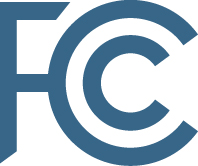FCC Takes Another Swing at Net Neutrality While Netflix Agrees To Pay for Faster Streaming
 In the wake of a January court ruling that struck down the Federal Communication Commission’s (FCC) standards for ensuring that Internet traffic is delivered without bias—a standard industry watchers refer to as ‘net neutrality’—the agency has issued a new proposal outlining a set of rules that would ensure Internet users have equal access to the full content of the Internet. Some experts, though, don’t think these new rules will be any more enforceable than those overturned earlier this year.
In the wake of a January court ruling that struck down the Federal Communication Commission’s (FCC) standards for ensuring that Internet traffic is delivered without bias—a standard industry watchers refer to as ‘net neutrality’—the agency has issued a new proposal outlining a set of rules that would ensure Internet users have equal access to the full content of the Internet. Some experts, though, don’t think these new rules will be any more enforceable than those overturned earlier this year.
FCC Chair Tom Wheeler outlined his proposal for a new set of rules in a statement on February 19. While the newly-minted FCC proposal makes some technical changes to the law, the heart of the agency’s definition of an Open Internet remains largely the same, working to ensure that no providers are blocked or discriminated against, and that Internet Service Providers (ISPs) are transparent in telling consumers how they allocate bandwidth on their networks.
“Preserving the Internet as an open platform for innovation and expression while providing certainty and predictability in the marketplace is an important responsibility of this agency,” Wheeler said in the statement, adding that “innovators cannot be judged on their own merits if they are unfairly prevented from harnessing the full power of the Internet.”
Wheeler also noted that the FCC would not challenge the ruling handed down last month from the D.C. Circuit Court of Appeals. That ruling allowed the FCC to continue enforcing transparency in ISP practices and working to ensure broadband access under Section 706 of the Telecommunication Act of 1996. The FCC’s new plan is to make rules similar to those that were recently struck down, but this time under the authority of Section 706. “In light of the Court’s finding that the Commission has authority to issue new rules under Section 706 and the ongoing availability of Title II, the Commission will not initiate any further judicial action in connection with the Verizon decision,” Wheeler’s statement read. The current statement is merely a proposal, with a more formal set of rules expected sometime in late spring.
Just how much success the FCC will have enforcing these new rules under section 706, though, remains to be seen. According to the American Library Association (ALA), there’s a lot riding on Wheeler and his commissioners ensuring that ISPs can’t discriminate between kinds of traffic. “We’re really pleased to see that Chairman Wheeler and the FCC are moving forward and revisiting these rules, and we certainly hope they’re successful this time,” said Lynne Bradley, Director of the Office of Government Relations at ALA. “This is a go-to-the-mat issue. The American public can’t afford for them not to get this right.”
While the FCC works to prepare a new set of rules for ISPs, a deal between Netflix and Comcast announced this month could mark a hit to the principle of net neutrality. That deal will see Netflix pay an undisclosed sum to guarantee direct access to Comcast’s network, with the aim of speeding up delivery from Netflix servers to viewers, ensuring that they can watch House of Cards, for example, without annoying buffering issues. By paying for direct access to Comcast’s network, Netflix has a straighter line to home computers, bypassing Cogent Communications, a Tier 1 ISP that distributes content from Netflix and other companies. Cogent CEO Dave Schaeffer this week told the tech news website Ars Technica that Comcast has continued to pressure Cogent for similar payments, despite their new deal with Netflix. While the Netflix and Comcast arrangement is not the first deal of its kind, it is the most highly publicized, and draws attention to the fact that all Internet traffic is not created equal, with companies already making deals to enhance how quickly their content gets to users.
It’s what the Electronic Frontier Foundation (EFF) calls a peering agreement, bringing a content provider and an ISP closer together. The trouble, said EFF spokesperson April Glaser, is that we don’t know how these agreements come together or what they entail. “We think that’s a problem,” Glaser told Library Journal. “A good Internet infrastructure should include transparency.” If the decisions over how to grow Internet infrastructure and who foots the bill for that growth remain opaque, said Glaser, it gives ISPs undue leverage in determining the shape that infrastructure takes—especially as those companies stand to get larger.
With Comcast currently attempting a merger with one of the other big three home broadband providers, Time Warner Cable, that practice could become a well-established precedent in the industry. The Senate Judiciary Committee has scheduled a hearing on the deal for March 26, and Chair Patrick Leahy (D-VT) has stated that issues of open Internet access will be addressed at that time. “The merger of Comcast and Time Warner Cable touches on important policy questions about how Americans access these valuable services,” Leahy said in a statement. “It also presents a critical moment to discuss net neutrality principles that have allowed the Internet to remain an open marketplace for ideas.”
RELATED
The job outlook in 2030: Librarians will be in demand
The job outlook in 2030: Librarians will be in demand
ALREADY A SUBSCRIBER? LOG IN
We are currently offering this content for free. Sign up now to activate your personal profile, where you can save articles for future viewing






Add Comment :-
Be the first reader to comment.
Comment Policy:
Comment should not be empty !!!